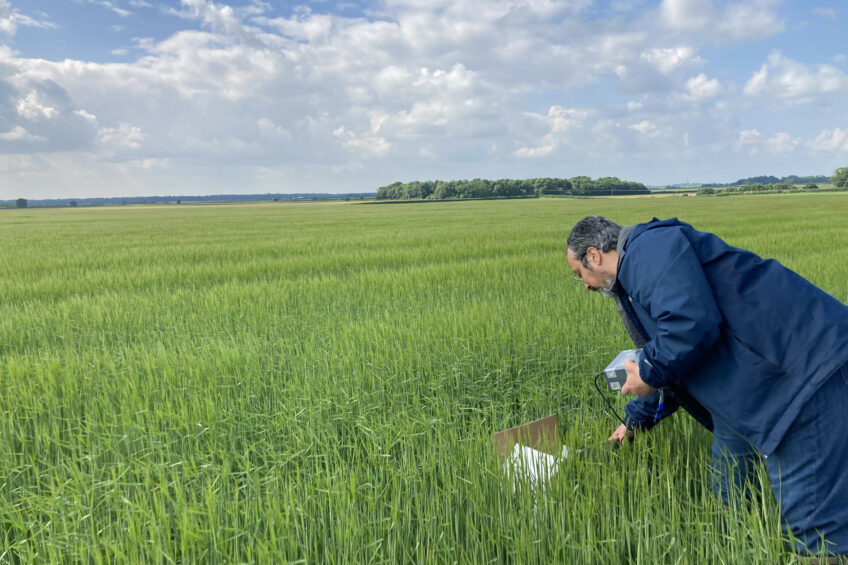UK field trials; can R-Leaf breakdown harmful gases in crops?

A NEW trial to discover the potential benefits when using R-Leaf containing a photocatalytic material to convert air pollution to fertiliser for plants is underway in the UK.
The trial started in February 2024 on wheat and barley at Dyson Farming in a year-long project.
Basically, R-Leaf is a foliar application for crops in the form of a suspension concentrate containing a photocatalytic material, TiO2, which is able to breakdown harmful gases into nitrates.
When sprayed on the crop the TiO2 is charged by the energy of the sun. It then breaks down NOx and produces nitrates, which are then taken up by the plant at foliar level when solubilised with morning dew or a bit of moisture.
In terms of advantages, R-Leaf provides a small amount of nitrates and slow release to the crop, providing an effective nutrient uptake.
R-Leaf has already been proven to compensate for between 30-50kgs of synthetic fertiliser reduction, whilst maintaining yield and seeing some increases of yield between 5-10%.

One of the other main benefits of using R-Leaf is that it is able to remove a greenhouse gas from the air, contributing to an enhanced carbon footprint reduction for farmers and the entire supply chain.
The product is a technology developed in the UK by Crop Intellect, founded by Dr Apostolos Papadopoulos who started working on this concept six years ago.
The technology has also been proven to remove 5.4 tons of CO2 equivalent per hectare per year.
Alvaro Montero Bockos, Chief Operating Officer, and Sustainability Lead, with Crop Intellect, outlined the latest trial.
Alvaro said: “The trials are part of a collaboration with Dyson Farming in a Innovate UK-funded project through the Farming Innovation Programme and the aim is to evaluate the performance of our product, R-Leaf, on removing a potent greenhouse gas N2O from the air when applied on crops.
“R-Leaf is able to breakdown NOx gases into nitrates, providing nitrates to the crop, but in parallel has an improved carbon footprint impact with the removal of the above mentioned N2O.

“This gas is one of the three main contributors to global warming and it has around 300 times more global warming potential than CO2.
“During the trial we used two litres of R-Leaf per hectare as it is the typical application recommended. The product is applied at two different times one litre at a time. We recommend T1 and T2 in cereals as time of application.
“The aim of the trials is to evaluate the performance of R-Leaf removing N2O, a greenhouse gas, from the atmosphere surrounding crops.
“Right now we are taking measurements in wheat and barley but we expect to do trials in other crops. We take air samples from the crops in different points within the target field and in a control field without our product.
“The trials are ongoing but what we expect to obtain is a reduction on the N2O concentration in air on the treated field respect to the untreated one,” he said.
Join 17,000+ subscribers
Subscribe to our newsletter to stay updated about all the need-to-know content in the agricultural sector, two times a week.



